
Edward Cedric Hardwicke was an English actor, who had a distinguished career on the stage and on-screen. He was best known for playing Captain Pat Grant in Colditz (1972–73), and Dr. Watson in Granada Television's Sherlock Holmes (1986–94).
The year 1940 in film involved some significant events, including the premieres of the Walt Disney films Pinocchio and Fantasia.
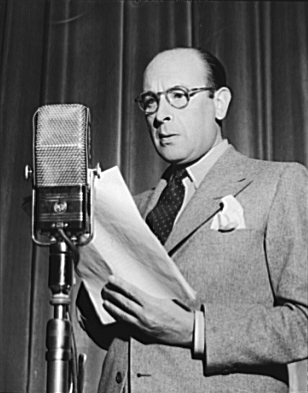
Sir Cedric Webster Hardwicke was an English stage and film actor whose career spanned nearly 50 years. His theatre work included notable performances in productions of the plays of Shakespeare and Shaw, and his film work included leading roles in several adapted literary classics.

Hans Walter Conrad Veidt was a German-British actor. He attracted early attention for his roles in the films Different from the Others (1919), The Cabinet of Dr. Caligari (1920), and The Man Who Laughs (1928). After a successful career in German silent films, where he was one of the best-paid stars of UFA, Veidt and his new Jewish wife Ilona Prager left Germany in 1933 after the Nazis came to power. The couple settled in Britain, where he took citizenship in 1939. Veidt subsequently appeared in many British films, including The Thief of Bagdad (1940). After immigrating to the United States around 1941, he was cast as Major Strasser in Casablanca (1942), his last film role to be released during his lifetime.

Contraband (1940) is a wartime spy film by the British director-writer team of Michael Powell and Emeric Pressburger, which reunited stars Conrad Veidt and Valerie Hobson after their earlier appearance in The Spy in Black the previous year. On this occasion, Veidt plays a hero, something he did not do very often, and there is also an early (uncredited) performance by Leo Genn.

Der Januskopf is a 1920 German silent film directed by F. W. Murnau. The film was an adaptation of Robert Louis Stevenson's 1886 novella The Strange Case of Dr. Jekyll and Mr. Hyde. Little is known about the production; it was shot and previewed under the title Schrecken with production starting in either February or March 1920.
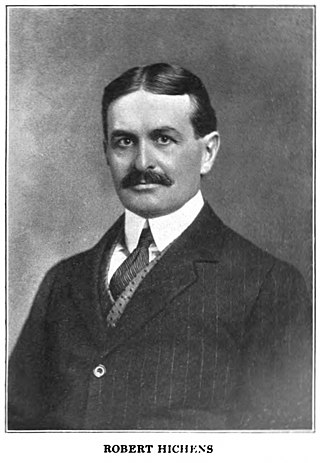
Robert Smythe Hichens was an English journalist, novelist, music lyricist, short story writer, music critic and collaborated on successful plays. He is best remembered as a satirist of the "Naughty Nineties".

Irene Lilian Brodrick, Countess of Midleton was a British stage and screen actress of the 1930s, 1940s and 1950s and also a novelist.

Ilka Grüning was an Austrian-Hungarian actress. Born in Vienna in the old Austrian-Hungarian Empire, she was one of many Jewish actors and actresses that were forced to flee Europe when the Nazis came to power in 1933. A respected and famous actress of her time in the German-language area, she was forced to play bit parts in Hollywood.

John Stuart was born to Scottish parents, and was a very popular leading man in British silent films in the 1920s. He successfully made the transition to talking pictures in the 1930s and his film career went on to span almost six decades. He appeared in 172 films, 123 stage plays, and 103 television plays and series.
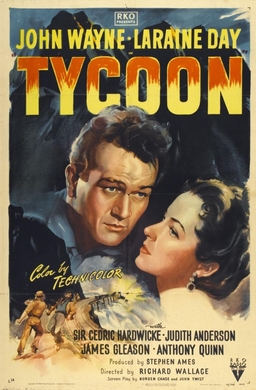
Tycoon is a 1947 American Technicolor romantic drama film directed by Richard Wallace and starring John Wayne, Laraine Day and Cedric Hardwicke. It was produced and distributed by RKO Pictures. It is based on the 1934 novel of the same name by Charles Elbert Scoggins.
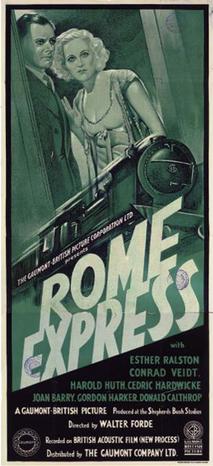
Rome Express is a 1932 British thriller film directed by Walter Forde and starring Esther Ralston and Conrad Veidt. Based on a story by Clifford Grey, with a screenplay by Sidney Gilliat, the film is a tale about a European express train to Rome carrying diverse characters, including thieves, adulterers, blackmail victims, and an American film star. The film won the American National Board of Review award for Best Foreign Film. Rome Express was remade as Sleeping Car to Trieste (1948).
Julius Hagen (1884–1940) was a German-born British film producer who produced more than a hundred films in Britain.

James Bernard Fagan was an Irish-born actor, theatre manager, producer and playwright active in England. After turning from the law to the stage, Fagan began his acting career, including four years from 1895 to 1899 with Herbert Beerbohm Tree's company at Her Majesty's Theatre. He then began to write plays, returning eventually to acting during World War I. In 1920, he took over London's Court Theatre as a Shakespearean playhouse and soon began to produce plays at other West End theatres. His adaptation of Treasure Island in 1922 was a hit and became an annual Christmas event.

Temptation is a 1946 American film noir thriller film directed by Irving Pichel and starring Merle Oberon, George Brent, Charles Korvin and Paul Lukas. The film was based on Robert Smythe Hichens's 1909 novel Bella Donna. Other film adaptations of the novel were produced in 1915, 1923 and 1934.
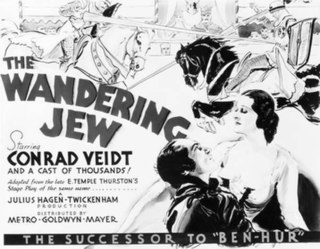
The Wandering Jew is a 1933 British fantasy drama film produced for the Gaumont-Twickenham Film Studios and directed by Maurice Elvey. It recounts the tale of a Jew who is forced to wander the Earth for centuries because he rebuffed Jesus while he was carrying his cross. The other cast members included Peggy Ashcroft, Francis L. Sullivan, and Felix Aylmer. This film is a remake of the 1923 silent film of the same name, based on a play of the same name by E. Temple Thurston.
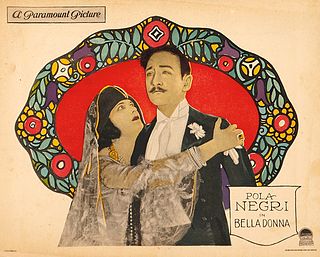
Bella Donna is a 1923 American silent film produced by Famous Players–Lasky and released by Paramount Pictures. The film is based on the 1909 novel, Bella Donna, by Robert Smythe Hichens which was later adapted for a 1912 Broadway play starring Alla Nazimova. This film is also a remake of the 1915 Paramount film Bella Donna starring Pauline Frederick. The 1923 film was directed by George Fitzmaurice and starred Pola Negri in her first American film.

William Tell is a 1934 German-Swiss historical drama film directed by Heinz Paul and starring Hans Marr, Conrad Veidt and Emmy Göring. It is based on the 1804 play William Tell by Friedrich Schiller about the Swiss folk hero William Tell. It was made in Germany by Terra Film, with a separate English-language version supervised by Manning Haynes also being released. It was shot at the Marienfelde Studios of Terra Film in Berlin with location shooting in Switzerland. While working on the film Veidt, who had recently given sympathetic performances of Jews in Jew Suss (1934) and The Wandering Jew, was detained by the authorities. It was only after pressure from the British Foreign Office that he was eventually released. It is also known by the alternative title The Legend of William Tell.

Land Without Women is a 1929 German drama film directed by Carmine Gallone and starring Conrad Veidt, Elga Brink and Clifford McLaglen. It was based on the novel Die Braut Nr. 68 by Peter Bolt. The film is set amongst a community of gold diggers in Western Australia. It was shot at the Staaken and Templehof Studios in Berlin with sets designed by the art directors Hans Sohnle and Otto Erdmann. It was made by the small independent production company Felsom Film using the Tri-Ergon sound-on-film process, the first full-length German-speaking sound film to be released. It was followed a month later by the first all-talking film Atlantik, which had been made in Britain.

Bella Donna is a 1909 British romance novel by the British writer Robert Hichens.


















